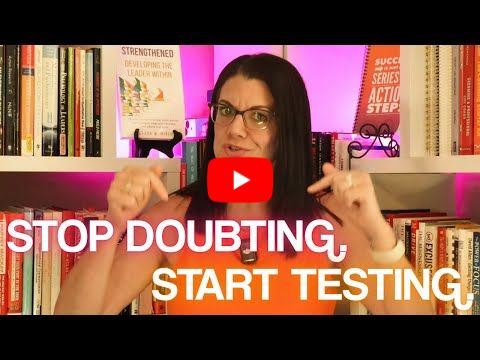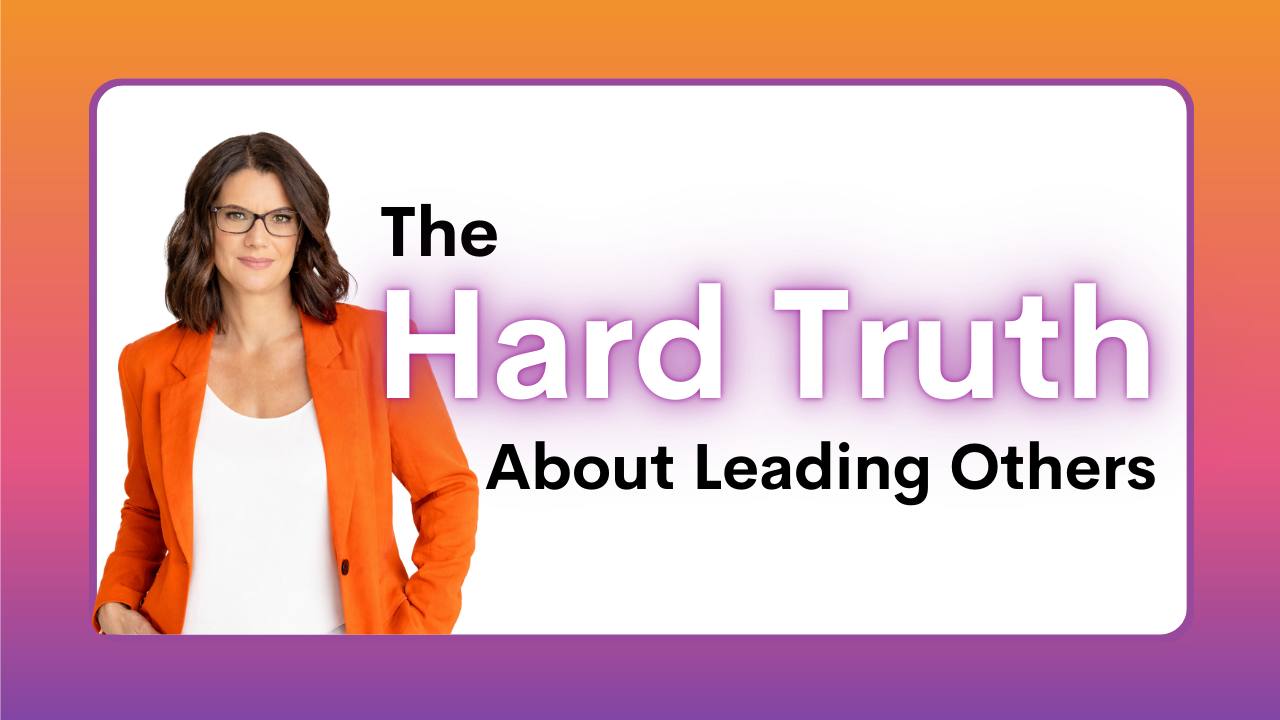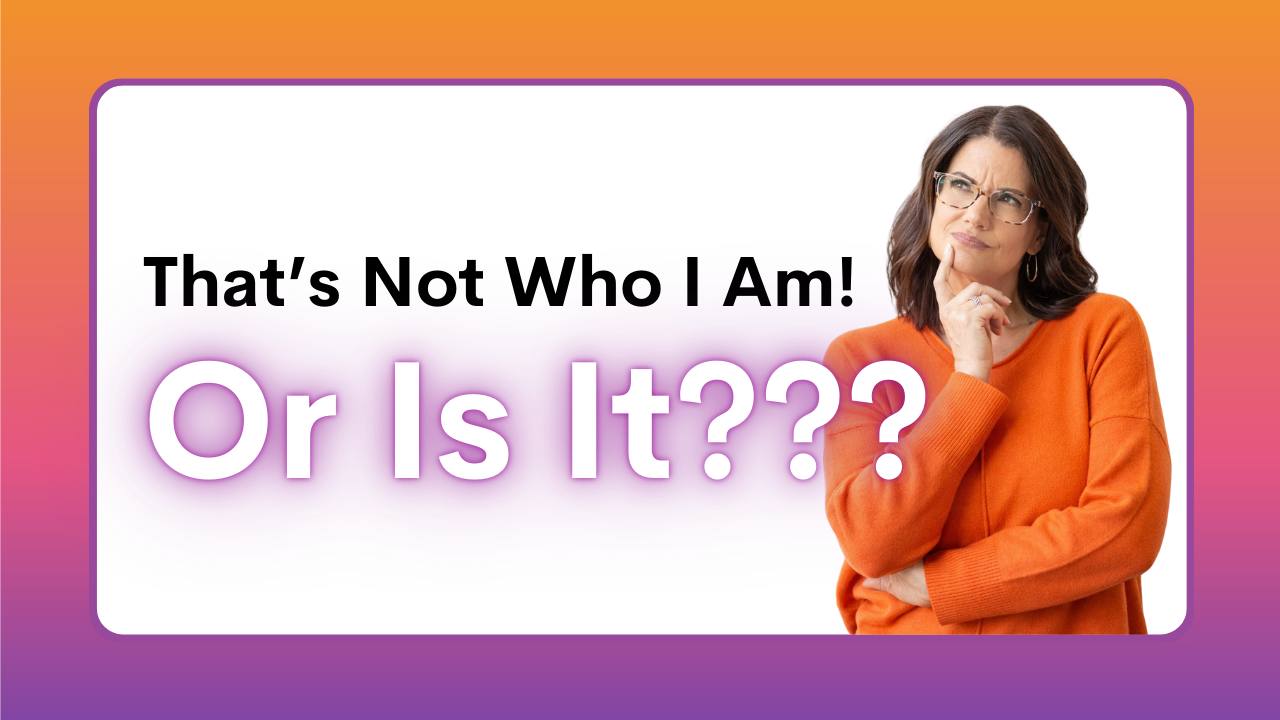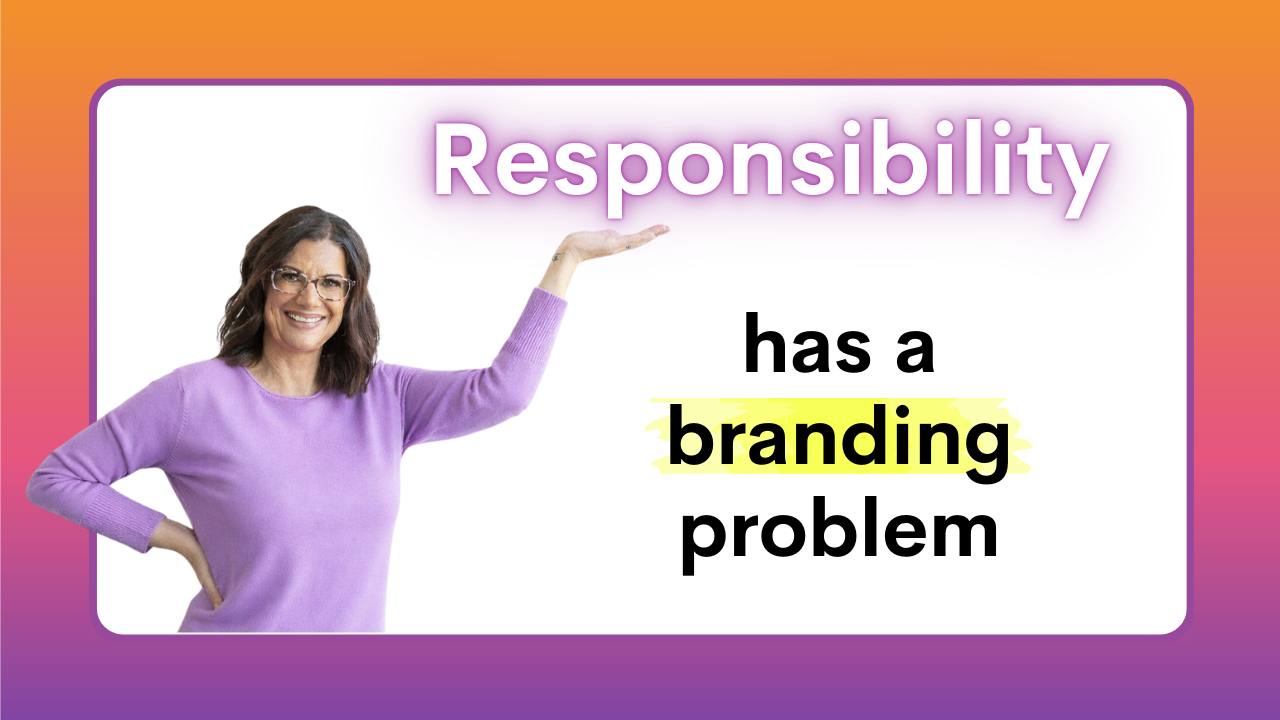PLN 08: What To Do When Imposter Syndrome Quietly Sneaks In
Time to Read: 4 mins
Have you ever had one of those moments where things appear to be going well, yet something inside still feels… off?
Maybe on paper, you’ve had a victory. Yet, something is holding you back from fully owning it.
And it often comes with an internal hum of: “Yeah, but…”
- Yeah, but they don’t know the whole story.
- Yeah, but I just got lucky.
- Yeah, but next time, they’ll see I don’t actually know what I’m doing.
That’s the version of imposter syndrome that isn’t loud or blatantly abrasive.
Instead, it’s subtle… and it’s sneaky!

It quietly fills your life with doubts, and if you’re not paying attention, it starts making decisions on your behalf.
A personal moment I haven't shared before...
A few years ago, I was invited to speak on a leadership panel with some seriously impressive people — tenured faculty, best-selling authors, and a couple of names I’d seen quoted in Harvard Business Review.
I was flattered. I was excited. And then…
I was immediately scared sh*tless! And I started second-guessing everything.
I remember reading over my bio and thinking, “Do I really belong on this list??”
Never mind that I’d been coaching leaders for years. Or that I’d earned my PhD while running a coaching business and managing the demands of family life.
And never mind that I had plenty of value to offer.
All I could hear was my inner critic whispering, “Don’t say too much. Try not to sound like a fraud.”
Here’s the thing… That voice didn’t yell or scream.
It just quietly tiptoed in and made itself heard. And in response, I started playing small.
And the thing is, no one on that panel made me feel that way.
They were lovely and warm and encouraging.
But it wasn’t about them, and the doubt wasn’t external. It was about me, and it was internal.
That’s how imposter syndrome operates.
It doesn’t need to come blaring in with a big, dramatic entrance. It's perfectly happy to quietly sneak in so it can trick you into doubting yourself.
My next move shifted everything...
Now, my younger self would’ve tried to “perform” my way through it.
But this time, I did something different.
I noticed what was going on, then took a quick pause to ask myself a question that’s since become a go-to:
👉 “What would my true self say if I trusted that I belonged here?”
I’m not talking about the me "at my best", or the ultra-confident, stage-commanding version of me.
I mean the version of me who knew she’d done the work. Who knew she brought something meaningful to the conversation. And who didn’t have to try and prove herself.
The version of me who could just show up, stay present, and participate.
And when I did that, I was able to connect with myself, and the audience, far more authentically.
I listened deeply, shared real insight, and asked questions that sparked conversation.
And by the end, multiple people came up to share how helpful my presence was.
Now, to be clear… that little question didn’t eliminate my imposter syndrome entirely.
But it did allow me to show up in a way that brought meaningful value to the equation. And when I saw those benefits through the eyes of others, my imposter syndrome was forced to loosen its grip.
💡Practionable Takeaway
When imposter syndrome tries to rear its ugly, controlling head, disarm it with a grounding question of your own.
Something short, centering, and honest.
Here are some to consider:
- What would I do if I already believed I belonged here?
- What’s true about me, even if I don’t feel it right now?
- If I weren’t trying to prove anything, what would I say or do?
- What if self-trust was the starting point, not the reward?
You don’t need to be 100% confident to move forward.
You just need a tool to return to your truth when the noise gets loud.
So write your grounding question and post it somewhere visible.
Stick it to your laptop. Add it to your phone wallpaper. Write it in your journal.
And the next time that quiet doubt creeps in, meet it head-on with your grounding question.
It won’t make the doubt completely disappear, but it will remind you that you’re allowed to be here fully, honestly, and as you are.
And over time, the doubt will dissipate.
🎥 Want to Go Deeper?
Imposter Syndrome is fueled by limiting beliefs. And limiting beliefs, in turn, fuel imposter syndrome. But this cycle can be disrupted!
In this week’s YouTube video, I share something rather personal — the belief I held for decades that almost kept me from pursuing higher education at all.
And more importantly, I walk you through how I rewired that belief using a self-leadership strategy you can start applying right away.
We’re not talking about fake-it-’til-you-make-it advice here. We’re talking about low-stakes, curiosity-driven action that builds real confidence over time.
So, if imposter syndrome has been circling in your world lately, check out the video here. 👇
|
✨ A little something special this week...
Has starting a podcast been on your heart, but something — maybe even imposter syndrome — has kept you from taking action?
If you want 2026 to be the year you share bigger conversations with the world, I’d love to introduce you to my friend Sarah. She runs Podfox Media and hosts Big Brave Business, ranked in the top 2% of podcasts worldwide.
She’s hosting a 5-day Podcast Launch Prep Week (Dec 8–12) to help you map your strategy, build your content plan, and set yourself up for real, business-building results... all for only $99.
What I appreciate most about Sarah is how she treats podcasting like a strategic business asset, not another content experiment — and that’s exactly why her clients succeed.
So, if you’re ready to build your own podcast success story, check out Podcast Launch Prep Week: podfoxmedia.com/launch-prep-week
To your success,
Laura








Responses